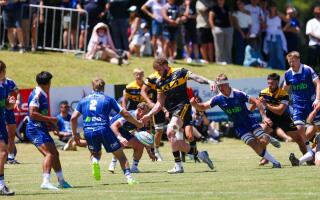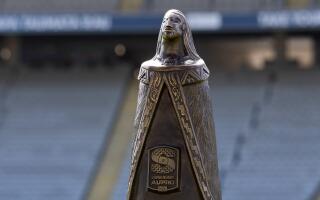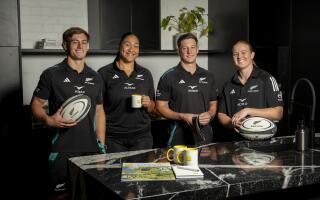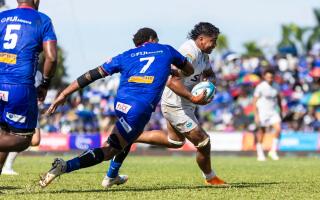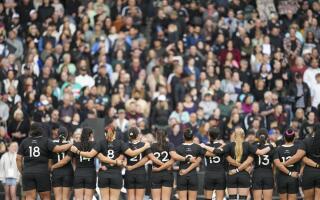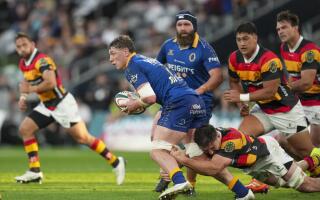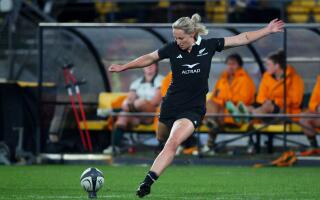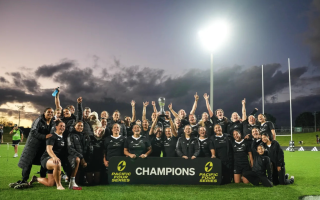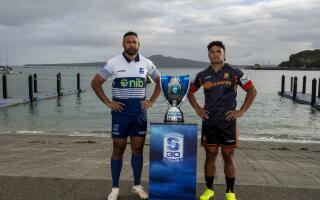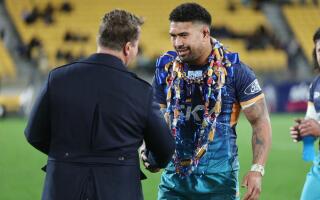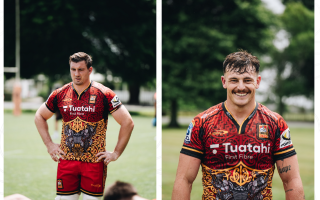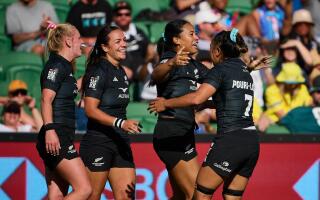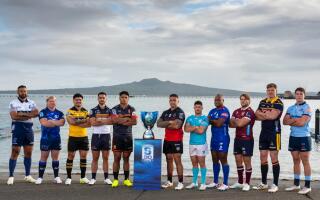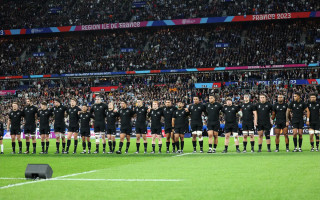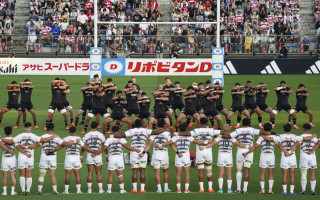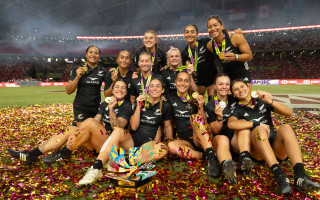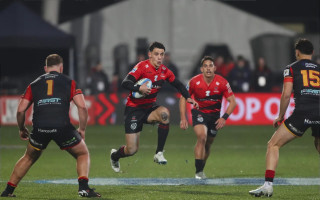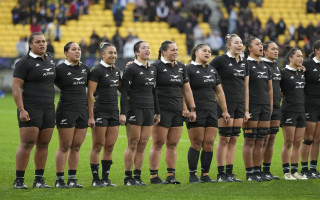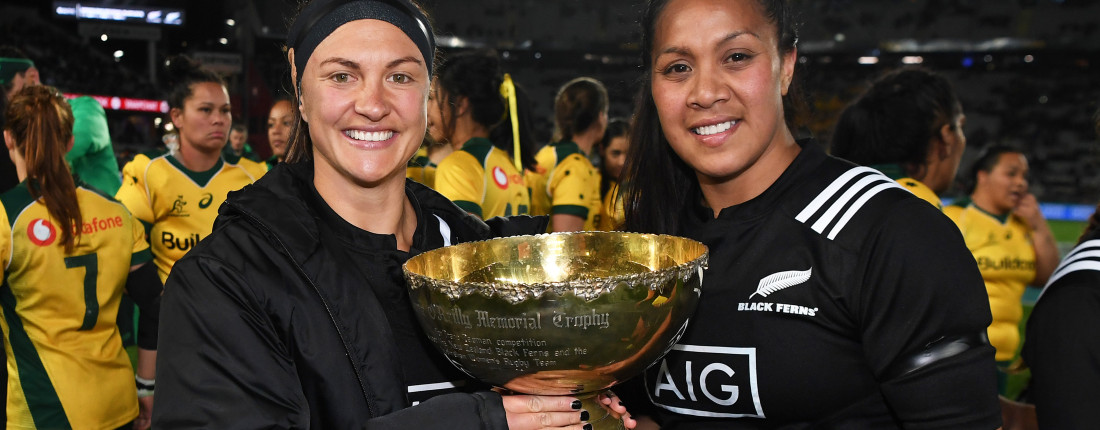
Raised in Timaru he completed his law degree at the University of Christchurch and was admitted to the bar in 1963, aged 21. In 1967 he became a partner for Cameron and Company, the only firm he worked for, later alongside All Black captain and NZRFU chairman Jock Hobbs.
A prop forward, Laurie won senior championships as a player with Canterbury University in 1963 and 1965. He turned his hand to coaching in 1968 and guided University to senior championship success in 1977, 1980, 1983 and 1987.
Laurie first became involved in rugby because his daughter Lauren was keen to play.
"Dad couldn't help himself. He'd walk by a park where a kid would be passing a ball. If they weren't doing it right, he'd go over and offer advice," Lauren said.
"If I was going to play, I might as well play properly.”
Lauren became a Black Fern. A hooker from Canterbury she played her only Test in the first international against Australia in Sydney in 1994. New Zealand won 37-0.
In 1988 Laurie coached of the Crusadettes, a milestone team for New Zealand Rugby. The Crusadettes won 17 out of 21 matches and racked up a staggering 520 points with only 67 conceded on a lengthy tour of Europe. Ten members of the Crusadettes would represent New Zealand in the First World Cup in 1991.
One of those players Natasha Wong, later the first woman elected to the Canterbury Rugby Football Union Board in 135 years, reflected.
“I didn’t have a shower by myself for a fortnight and sharing a bed with three of four women wasn’t uncommon.”
Laurie was the coach of the first official New Zealand women's team in 1989. New Zealand beat the California Grizzlies 13-7 in Christchurch. No.8 Maree Fitzgibbon scored the winning try. The Christchurch Star reported:
“A telling burst by the lively New Zealand halfback Debbie Ford, swept the side onto the attack and after a series of scrums No. 8, Maree Fitzgibbon finally scored. It was fitting that the New Zealand scrum should produce the winning points because it recovered from early pressure from the Grizzlies to stamp its authority on the game.”
Fitzgibbon was humble when recalling the moment.
“It was an awesome scrum, and my job was to pick up the ball and dot it down over the line which was followed by an overwhelming feeling of pride and relief I didn’t butcher it.”
In 1990 O’Reilly helped organise the groundbreaking World Rugby Festival in Christchurch, a tournament involving club, provincial and international teams from as far-flung as the Soviet Union, competing in a series of 62 games over a fortnight.
Remarkably Black Fern number one Jacqui Apiata played an incredible 16 games in 15 days for the University of Canterbury, Canterbury, and New Zealand XV. O'Reilly identified her as the player of the tournament as she wasn't part of a losing team.
In 1991 O'Reilly mentored New Zealand at their first World Cup making the semi-finals. The players had to fundraise $5000 each to tour. New Zealand beat Wales and Canada in the World Cup group stage but came unstuck against eventual champions the USA in the semifinals.
In 1992 the New Zealand women's team was formally recognised. That season they beat Auckland 36-0 at Eden Park. Anna Richards scored two tries. In 1993 a National training camp was held at the New Zealand Police College in Wellington.
Laurie devoted countless volunteer hours and expenditure of his own money to advance the female game.
Laurie was a mentor for Sir Wayne Smith. In 2022 Smith coached the Black Ferns to Rugby World Cup glory and a 12-0 season. Lauren O’Reilly, now a teacher at Francis Douglas Memorial College, said.
"I think Dad and Wayne probably bonded because they're great thinkers about the game. They care about people and put others first.
"Dad had all these sayings like, 'play in the rain, train in the rain' and 'good skills create good luck.'
"When I was playing for Canterbury, we were lucky All Blacks like Warwick Taylor and Victor Simpson would come and help at training. I think Wayne has carried on that special gift of sharing knowledge."
Sir Wayne Smith reflected.
“My coaching mentor was Laurie O’Reilly. I first met him in 1979 when I moved to Christchurch as a young fella. He answered the door wearing a kaftan which I’d never seen before coming from Putāruru. I was pretty insular at that time, and he was interesting, engaging, and different from the rugby stereotype. He must have seen something in me because he encouraged me to get into coaching. He was hugely important in a lot of young people’s lives.”
Tragically, the longtime lawyer and Children's Commissioner died of cancer in 1998, aged 55. The Laurie O'Reilly Trophy was inaugurated in 2007.
The Black Ferns have won all 25 Tests against Australia outscoring the Wallaroos 942-178. The closest Test was a 22-16 New Zealand win in 2008.
First Laurie O'Reilly Trophy Test (2007)
The Black Ferns beat Australia's Wallaroos 21-10 at Cook Gardens in Whanganui on Tuesday, October 16, 2007.
Otago wing Carla Hohepa scored two tries in her Black Ferns debut while another newcomer, Auckland’s Faanati Aniseko scored a try 20 seconds after coming on as a replacement. Aniseko was 18 years old. Auckland halfback Emma Jensen kicked two penalties.
Australia’s solitary try was scored by winger Tegan French who snatched an intercept.
Debut Black Ferns coach Dale Atkins (coached by Laurie O’Reilly at University) remarked.
“It was quite an intense game. The Wallaroos played exceptionally well while we initially looked quite rusty. We kicked away possession way too often in the first half but changed things a bit in the second half, putting pressure on the Wallaroos in the set pieces and getting go forward ball to the backs, and we got the result.”
Last North Harbour Stadium Test (2016)
Following a record 67-3 thumping of Australia at Eden Park, the visitors displayed much stronger resolve on defence and much-improved ball retention to keep the Black Ferns scoreless for long periods in the re-match four days later..
Captain Ash Hewson was a stand out for the Wallaroos and made sure that her side enjoyed time deep in the Black Ferns half through several deft tactical kicks. The territorial advantage was unable to be turned into points though as the Black Ferns defended stoutly to keep the Wallaroos try-less for a second straight Test match.
The scoring was opened when Black Ferns loose forward Sarah Hirini pounced on a loose throw from the line out to charge over the line. The Wallaroos didn’t take long to answer back through a penalty to Hewson to close the gap to 7-3 before retaining possession well to frustrate the Black Ferns.
Just like at Eden Park, the Black Ferns made the most of their scoring opportunities and crossed for tries to loosehead prop Toka Natua and wing Honey Hireme to close out the first half 17-3.
Hirini alongside hooker and captain Fiao’o Faamausili led a stoic defensive effort. In the last twenty minutes, the Wallaroos resistance wavered. Tries to the prolific pair of Portia Woodman and Selica Winiata secured a comfortable 29-3 win.
